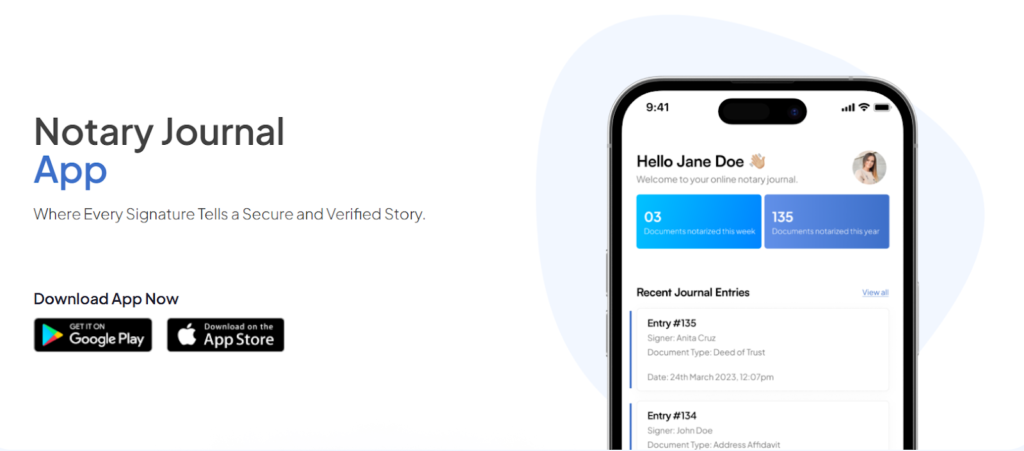oxygen domain was triggered too early. This is usually an indicator for some code in the plugin or theme running too early. Translations should be loaded at the init action or later. Please see Debugging in WordPress for more information. (This message was added in version 6.7.0.) in /var/www/wp-includes/functions.php on line 6121A notarized document is authenticated by a licensed notary public, adding a layer of trust and legal standing. This process is important for verifying identities and ensuring the authenticity of signatures, thereby preventing fraud.
However, even notarized documents can become invalid due to errors like incorrect information or missing signatures. Understanding these pitfalls and how to avoid them is essential to ensure your documents remain legally binding.

Proper ID verification for all signatories is crucial. The notary must confirm the identity of each person signing the document. Failure to do so can lead to the document being invalidated, as it raises doubts about the authenticity of the signatures. The Notary Journal App simplifies this process using advanced ID verification technology, ensuring that all signatories are correctly identified and recorded, thus preventing invalidation due to identification issues.
Ensuring that all information on a notarized document is accurate is paramount. Mistakes in names, dates, or other critical details can render the document invalid. For example, a misspelled name or incorrect date can lead to disputes and legal challenges, questioning the document's authenticity. To avoid this, double-check all entries for accuracy before proceeding with notarization.
Every required party must sign the document in the presence of the notary. Missing signatures or signatures placed incorrectly can invalidate the document. The notary's role includes witnessing these signatures, which verifies the identity and willingness of the signers. If a document lacks the necessary signatures or they are not properly witnessed, its legal standing can be compromised.
The notary's seal or stamp is a critical component of the notarization process. It serves as the official mark that the notary has verified the signatories and witnessed the signing of the document. Without this seal or stamp, the document may be considered invalid. Furthermore, improper use, such as a smudged or incomplete seal, can also lead to questions about the document’s validity. Ensuring that the seal or stamp is clear and correctly placed is essential.
Using the Notary Journal App can help mitigate these common mistakes by providing a streamlined, secure, and compliant notarization process. The app ensures all information is correctly entered, signatures are properly witnessed, and the notary’s seal is appropriately applied, safeguarding the validity of your documents.

The validity of a notarized document hinges on the notary’s current and active commission. A notary’s commission is essentially their license to perform notarizations granted by the state. If a document is notarized by someone with an expired or revoked commission, it is considered invalid because the notary is not authorized to act in that capacity. This can lead to legal disputes and the document being dismissed in court. To prevent this, always verify that the notary’s commission is up-to-date.
Notaries are required to operate within the jurisdiction specified by their commission, which is typically the state in which they are licensed. Notarizing documents outside of this authorized area can invalidate the notarization. For instance, a notary commissioned in California cannot notarize documents in Nevada. The jurisdictional limitation ensures that the notary is subject to the regulatory oversight of the state that commissioned them. Violating this rule can lead to severe legal consequences and render the document invalid.
Notarization laws vary significantly from state to state, affecting the validity of notarized documents. Each state has specific requirements regarding the notarization process, such as the number of witnesses needed, the types of acceptable identification, and whether a notary must use a stamp or seal.
For example, some states may require a notary to keep a journal of their notarizations, while others may not. Failure to adhere to these state-specific requirements can invalidate the notarized document. It is crucial to be aware of and comply with the laws in the state where the notarization is performed.
By ensuring the notary’s commission is current, adhering to jurisdictional boundaries, and following state-specific laws, you can prevent the invalidation of notarized documents. The Notary Journal App aids in maintaining compliance by providing up-to-date information on notary commission status, jurisdictional guidelines, and state-specific requirements, ensuring that your notarizations are always valid and legally sound.
To ensure the validity of notarized documents, notaries should always pay attention to specific areas:
A thorough verification process is essential to ensure the validity of a notarized document. This involves checking the identification of all signatories and confirming their willingness to sign. Proper ID verification prevents fraud and ensures that the individuals involved are who they claim to be. Additionally, confirming the willingness of the signatories ensures that the document is signed voluntarily, which is crucial for its legal standing.
The Notary Journal App enhances this verification process by using advanced technology to verify IDs and record the information securely. The app provides a robust platform where notaries can capture and store all necessary details, ensuring compliance with legal standards. By automating parts of the verification process, the app reduces the risk of human error and ensures that all steps are thoroughly documented.
Maintaining accurate and detailed records of notarizations is not just a best practice—it is often a legal requirement. Proper record-keeping ensures that there is a clear and traceable history of all notarizations performed, which is crucial for audits and legal disputes. These records typically include details such as the date of notarization, the type of document, the identities of the signatories, and the notary's own identification details.
The Notary Journal App simplifies this process by automatically populating and securely storing journal entries. This ensures that all records are accurate and easily accessible when needed. The app’s digital format also prevents the loss or damage of physical records, providing an added layer of security.
Notarial laws and best practices can change over time, making it important for notaries to stay informed and up-to-date. Continuous education helps notaries maintain their knowledge and skills, ensuring they perform their duties correctly and comply with current laws. Resources such as professional associations, online courses, and continuing education programs can be valuable for notaries seeking to stay current.
Notaries can avoid common mistakes that invalidate documents by staying informed about the latest developments in notarial law and practice. The Notary Journal App supports this by providing access to educational resources and updates on legal requirements, helping notaries stay compliant and knowledgeable.
Using these best practices, notaries can significantly reduce the risk of invalidating documents and ensure the highest standards of integrity and compliance in their work. The Notary Journal App is an invaluable tool in this process, providing the technology and resources needed to uphold these standards.
| Join as a notary and get a Free complimentary listing on our partner site: ww.notarypublicdirectory.com |

The Notary Journal App provides robust tools for securely and accurately verifying the identities of all signatories involved in the notarization process. The app employs advanced technology to scan and validate identification documents, ensuring that each signatory is who they claim to be.
This level of verification is important in preventing fraud and ensuring the integrity of the notarized document. Notaries can confidently confirm the parties' identities by using the app, significantly reducing the risk of invalidation due to improper ID verification.
One of the standout features of the Notary Journal App is its ability to auto-populate journal entries and securely store all necessary information. This automated process ensures that every detail is accurately recorded, from the signatories' identities to the document's specifics being notarized.
Secure digital storage prevents records' loss, damage, or tampering, which is critical for legal compliance and audit purposes. The app's efficient record-keeping capabilities save time and ensure that all records meet legal standards, providing a reliable reference for future needs.
The Notary Journal App includes built-in compliance checks that help prevent common errors that can invalidate documents. These checks ensure that all required elements, such as signatures, dates, and notary seals, are correctly placed and completed.
The app also verifies that the notary's commission is current and valid and that the notarization is performed within the authorized jurisdiction. By automatically identifying and addressing potential issues, the app helps notaries adhere to state-specific laws and regulations, ensuring that each notarized document is legally sound.
This technology-driven approach ensures that notarizations are carried out with the highest level of accuracy, security, and compliance, providing peace of mind for both notaries and their clients.
If you discover an error in your notarized document, follow these steps to correct it:
Yes, a document can be re-notarized if it was initially invalid. The process typically involves:
To verify the validity of a notarized document, you can:
If the notary’s commission was valid at the time of notarization, the notarized document remains valid even if the commission expires afterward. The key is that the notary was authorized at the time of performing the notarization.
Generally, notaries are limited to performing notarizations within the state where they are commissioned. Notarizing documents outside of their jurisdiction can invalidate the document. However, some states allow for remote online notarization, which can sometimes bridge jurisdictional gaps if both states recognize the practice.
A self-proving affidavit is a notarized document attached to a will, signed by the witnesses, that verifies the validity of the will. This affidavit can simplify the probate process by eliminating the need for witnesses to testify in court about the will’s authenticity.
Ensuring the validity of notarized documents is crucial for maintaining their legal standing and preventing disputes. By understanding common mistakes, adhering to legal requirements, and following best practices, you can safeguard the integrity of your notarized documents. The Notary Journal App is an invaluable tool in this process, offering features like secure ID verification, automatic record-keeping, and built-in compliance checks to help minimize errors and ensure full compliance with legal standards.
Take control of your notarization process today. Download the Notary Journal App to streamline your workflow, enhance security, and maintain the highest standards of validity for all your notarized documents. Ensure your documents are always legally sound and reliable with the Notary Journal App.